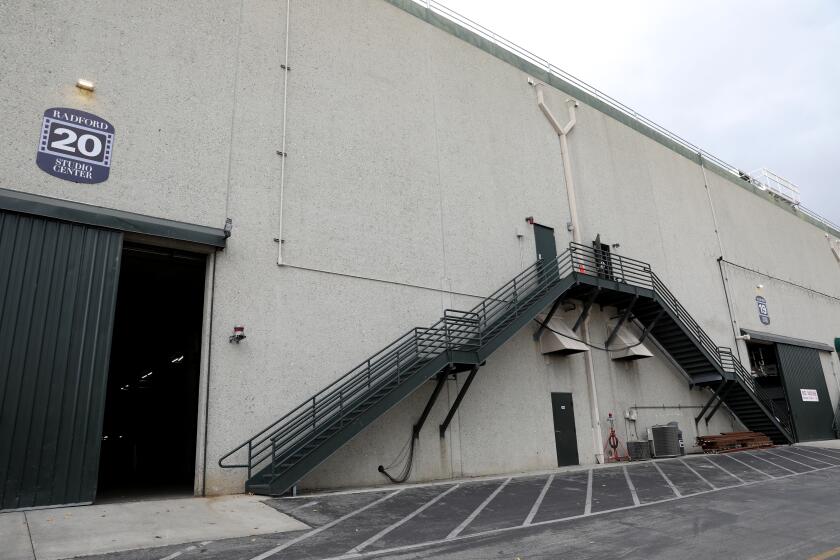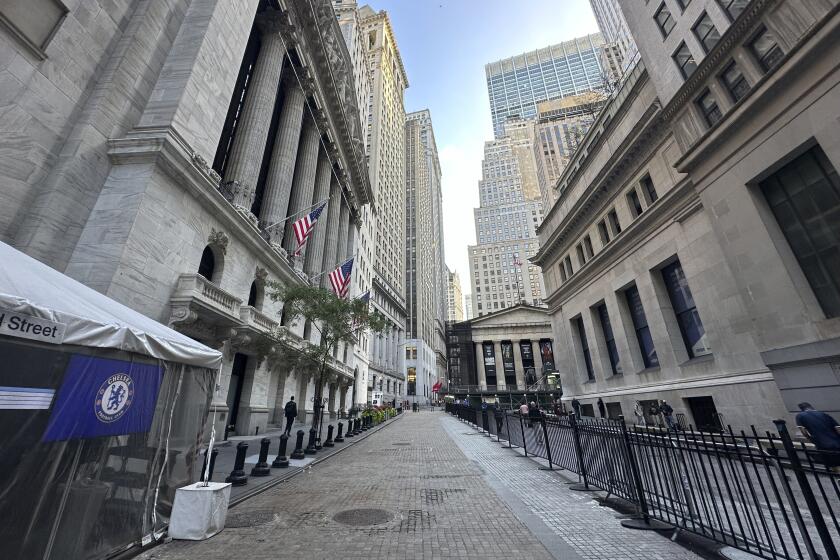Executives Urge Greenspan to Ease Credit
Top executives of America’s major corporations, worried about a delayed and weak recovery from the current recession, Saturday urged Chairman Alan Greenspan of the Federal Reserve Board to take further steps to lower interest rates.
After the closed session of the Business Council, Greenspan refused to speak to reporters, but several participants said that he did not indicate whether he would follow the business executives’ advice.
Even so, it was an extraordinary face-to-face session where the business leaders were able to tell the Federal Reserve chairman personally that they do not see any signs of an upturn in the next six months.
John F. Welch Jr., chairman of General Electric Co., said after the 90-minute session that there was an apparent consensus among the businessmen. “The sentiment was that there’s very little risk to easing, but the timing is up to him,” Welch told reporters.
Walter V. Shipley, chairman of New York’s Chemical Bank, was one of those who has advocated Fed action to encourage lower interest rates.
“If we go along for a period here and don’t see an upturn, I would expect to see more easing,” Shipley said.
David Rockefeller, former chairman of Chase Manhattan Bank, said that he got the impression Greenspan was saying: “If we have to, we will. Be patient.”
A spokesman for Greenspan, however, said that the Fed chairman did not go beyond his recent public testimony to congressional committees in his remarks to the council, a group of 100 corporate chief executives that meets twice a year at this mountain resort.
The atmosphere at the spring session was about as gloomy as the foggy weather that shrouded the nearby Allegheny Mountains, despite a forecast by corporate economists that a moderate recovery will begin in mid-summer. The men who run big businesses were far more pessimistic than their experts.
As former Treasury Secretary W. Michael Blumenthal, a partner in the Wall Street investment firm of Lazard Freres & Co., described the outlook: “Things aren’t getting any worse but they are not getting any better, either. There’s no evidence of an upturn in the second or third quarter this year.”
Most of the corporate executives at the two-day meeting, he said, would be happy to see the Federal Reserve Board take additional actions to bring interest rates down even more.
Greenspan and the Fed acted only 10 days ago to lower the discount rate charged for loans to banks and took other steps to make credit more available to borrowers at lower prices.
But Welch, who is chairman of the council, declared: “Most of us felt that conditions are in place, with lower inflation and a stronger dollar, to give the Fed flexibility . . . . He (Greenspan) has done a great job of managing this thing . . . but most of us feel the risk-reward (ratio) favors movement” toward even lower rates, Welch said.
Edmund T. Pratt Jr., chairman of Pfizer Inc., said Greenspan was cautious in responding to business leaders’ requests for greater stimulation of the economy through adjustments in monetary policy.
“Most of what he said was that it’s not that simple,” Pratt said after the session. “He’s worried about the side effects.”
In the past, Greenspan has taken the position of most of his predecessors that the Federal Reserve must be careful not to kick off another round of inflation in an attempt to quicken the recovery.
Norman R. Ornstein, a resident scholar at the American Enterprise Institute in Washington who sat in on the session, said afterward that the business leaders were “antsy” about the state of the economy and hoping to see more action from the Federal Reserve to combat the recession.
“They want to see a movement out of the recession more quickly,” Ornstein told reporters. “He (Greenspan) listens to what they say very carefully but he keeps his own counsel.”
The 20 economists who prepared a report to the Business Council on the economic outlook said that they anticipate recovery from the recession will be about half as rapid as the average postwar business slump.
“Improvement in consumer sentiment since the end of the (Persian) Gulf War has not, at least so far, brought any clear evidence of a strengthening in actual consumer buying or an upturn in overall economic activity,” the experts said.
While the Federal Reserve is expected to continue to show concern about revival of inflationary pressures, the consultants added, they do not expect that interest rates will rise significantly through the middle of 1992.
More to Read
Inside the business of entertainment
The Wide Shot brings you news, analysis and insights on everything from streaming wars to production — and what it all means for the future.
You may occasionally receive promotional content from the Los Angeles Times.






